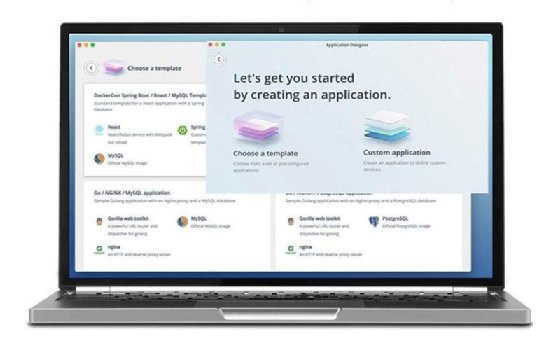Docker Enterprise suite overhaul eases container uptake
Docker is working to help enterprises ease their way into using containers with a suite of services and pre-integrated capabilities in products in Docker Enterprise 3.0.
SAN FRANCISCO -- Docker this week debuted Docker Enterprise 3.0, a significant upgrade to its comprehensive container system, adding four key areas to help enterprises build Docker container and Kubernetes-based applications.
In addition to an updated Docker Desktop Enterprise integrated into the overall platform, the company also introduced Docker Applications, a set of productivity tools for developers. In addition, Docker Enterprise 3.0 includes Docker Kubernetes Service and Docker Enterprise-as-a Service.
Docker Applications also added the open standard, known as CNAB or Cloud Native Application Bundles, created by Docker and Microsoft. Docker said Enterprise Suite 3.0 will be available in the summer of 2019.
One attendee here at Docker's annual conference, DockerCon, said he was most intrigued by the Application Templates and enterprise software bundles.
"They are pretty slick to help you quickly build apps on any infrastructure," said the developer, who goes by the name Fode and is an independent Docker developer from Senegal. Fode said he is unable to use the tools initially because he uses Docker Community Edition, which won't include these features.

Docker Enterprise-as-a-Service is a full managed enterprise container service based on Docker Enterprise 3.0 that can be used on-premises, initially via the open source OpenStack cloud framework, or public cloud on AWS and Microsoft Azure, said Scott Johnston, executive vice president and general manager of Docker's enterprise group.
Developers can use Docker Enterprise-as-a-Service on demand. Docker sells it directly to customers but implements it with system integrator and service provider partners. The multinational consulting and outsourcing company Capgemini is the first partner to ink a deal with Docker to provide and maintain the service for customers.
Docker Desktop Enterprise aims to increase developer productivity and automate application delivery as part of an overall development-to-production experience that enables developers to deploy applications to a Kubernetes-conforming environment.
Docker Desktop Enterprise also has automated pipeline integration and centralized IT management. Centralized IT management is for enterprises to lock down ports forbidden to developers, Johnston said. "Management is a big part of Docker Desktop Enterprise," Johnston said.
One user in the healthcare industry, whose enterprise currently uses Docker to containerize its monolithic apps, said he was particularly interested in the Docker Desktop.
"I'm here primarily to figure out how to make our developers more productive," said the software engineer, who requested anonymity because he had not been pre-authorized to speak for his company.
The healthcare company first containerized its development systems before moving to test and production, he said. Its first Docker app was the onboarding of new engineers. He said the process that once could take up to two days now takes less than an hour, after containerizing all the relevant applications.
"Developers love the Docker container APIs and runtime because it saves them time and frustration by mostly eliminating the need to debug application issues originating from differences between dev, test, staging, and production environments," said Torsten Volk, an analyst at Enterprise Management Associates in Boulder, Colo.
Meanwhile, as the Docker Kubernetes Service is compatible with YAML formatting used in Docker Compose for multi-container application configuration, Kubernetes configurations and Helm charts, it automates management and scale of Kubernetes-based apps and provides security, access control and automated lifecycle management. It also enables users who prefer to use Docker swarm mode rather than Kubernetes to use it to orchestrate their containers.
In addition, Docker introduced application bundles to help developers build and run apps on any infrastructure. These services originated from the success of Docker's Modernize Traditional Applications program, launched two years ago. Docker will deliver these services through its professional services and consulting program.
One expert was cheered to see Docker working to ease enterprises into using containers. A suite of Docker services and products with Docker Enterprise 3.0 and pre-integrated capabilities is what CXOs want for their teams who build next-gen apps, said Holger Mueller, an analyst at Constellation Research in San Francisco.
Moreover, more value is created from being able to re-use code assets -- and that's what Docker has achieved with its ARM partnership. Still, enterprises need help from system integrators, thus the as-a-service offering launching with Capgemini as the first purveyor.
Docker does need to prove the viability of the enterprise products and service launched during DockerCon, with evidence of increased adoption during the next few quarters. Docker hopes to claim the role of an enterprise software platform that enables teams to reuse code everywhere.
"The question is can Docker containers run in the cloud better on the IaaS than the native containers," Mueller said. "And do the IaaS folks have the appetite to move to support mobile, ARM, et cetera? That will make the 'Switzerland' [neutral] position that Docker seeks to assume more difficult."






